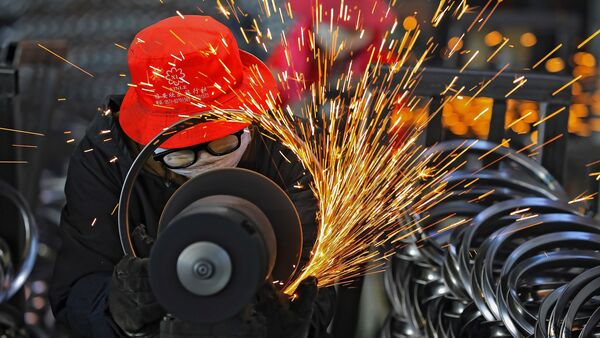 Opinion
Opinion
India has reason to be wary of China's economic slowdown

Summary
- The troubles of China's steel industry are evidence of its economy hurting, and this poses spillover threats. India too faces risks, although a pragmatic policy that manages FDI rather than clamping down on it can help mitigate them.
Data sets emerging from China for the April-June quarter had observers sit up and take notice: on a net basis, foreign investors had pulled out a record $15 billion, forcing stock exchanges to stop releasing data on foreign investment flows.
This, in a way, further confirms apprehensions that growth in the Chinese economy, a critical engine for the world economy, has been sputtering due to slowing consumption demand and other structural problems. This has multiple implications for India.
The slowdown is confirmed by the International Monetary Fund. In a report this month, it said that the Chinese economy, which grew 5.2% in 2023, will slow to 5% in 2024 and further to 3.3% by 2029. It internally faces stagnating consumption, with challenges arising from slackening real estate demand and high government debt.
Additional headwinds are emerging from decelerating productivity and an ageing population. Externally, demand for Chinese goods and services is hitting a wall of tariff and non-tariff barriers, be it in the US or Europe.
Also read: China should consider setting a formal inflation target
China’s problems in the domestic economy are best exemplified by the performance of its steel industry which has been weighed by the real estate downturn, spending squeeze by households and prohibitive duties on the country’s exports, such as the countervailing duties imposed by the EU on Chinese electric vehicles.
China is the world’s largest steel manufacturer, with close to 500 production units and an annual manufacturing capacity of about 1.18 billion tonnes of different steel varieties. Steel prices this year have plunged to multi-year lows, with many mills reporting losses.
This is fuelling problems of excess inventory and apprehensions of a wave of Chinese steel dumping across the globe, particularly in the Asia-Pacific. Ripples emanating from the turmoil here have already washed up on Indian shores, with domestic steel prices falling to three-year lows.
This is a deviation from the trend: the Indian steel industry has been reporting stellar growth over the past few quarters, with consumption growing by over 12% in 2023-24, catalysed by the government’s front-loading of capital expenditure and a nascent private investment revival. The government’s production-linked incentives for specialty steel had also crowded-in investments.
Moreover, there are broader repercussions of the slowdown in China for India. It will manifest not only by way of increased imports of subsidised Chinese steel but a rising flood of cheap Chinese manufactured goods, which will hurt sales and profitability of a wide swathe of Indian manufacturing businesses.
Also read: Mint Quick Edit | China’s outflows and India’s chance
India already has a big trade deficit with China, despite the government’s high-decibel rhetoric, and there is potential of this widening further as the slowdown adversely affects demand for Indian goods and services.
In addition, if speculation of Beijing planning a stimulus programme to catalyse household consumption materialises, the structure of the package might include inexpensive loans and subsidies for Chinese domestic manufacturers. This would hold out additional risks for the Indian economy.
In this context, the Economic Survey’s suggestion to welcome higher Chinese foreign direct investment (FDI) merits a second look. This is not to suggest that geopolitical and security concerns associated with such investment should be disregarded.
Instead, the government should craft a more nuanced China FDI policy that shuns grandiloquence in favour of pragmatism and leverage the opportunity to resolve the border impasse.

